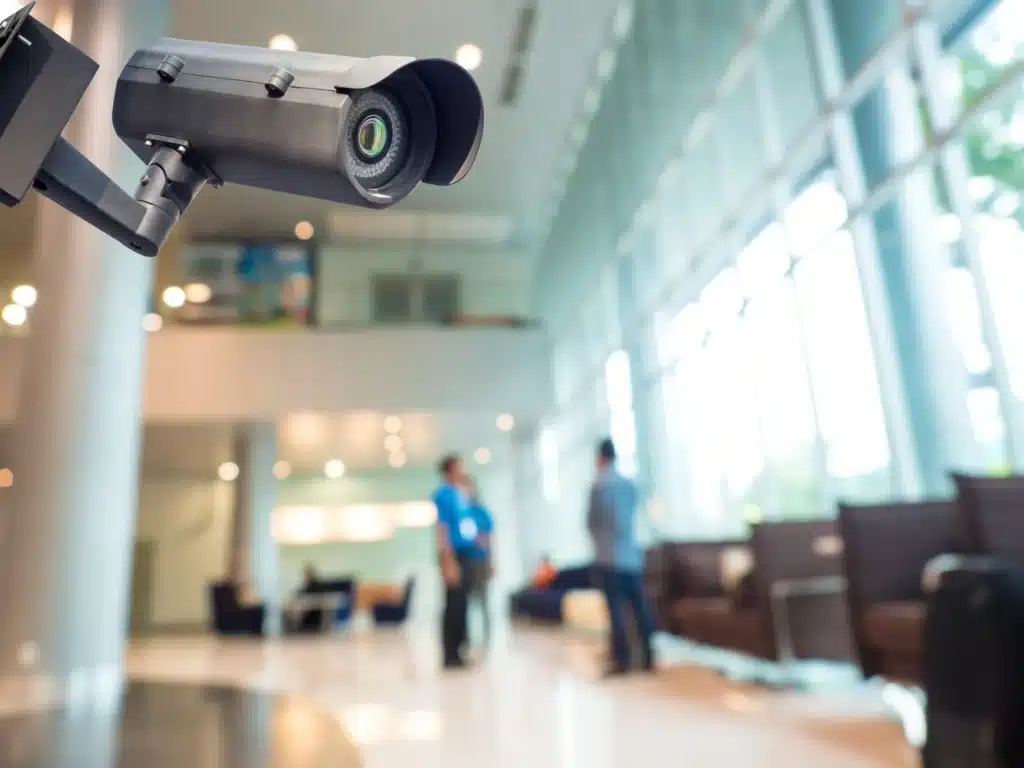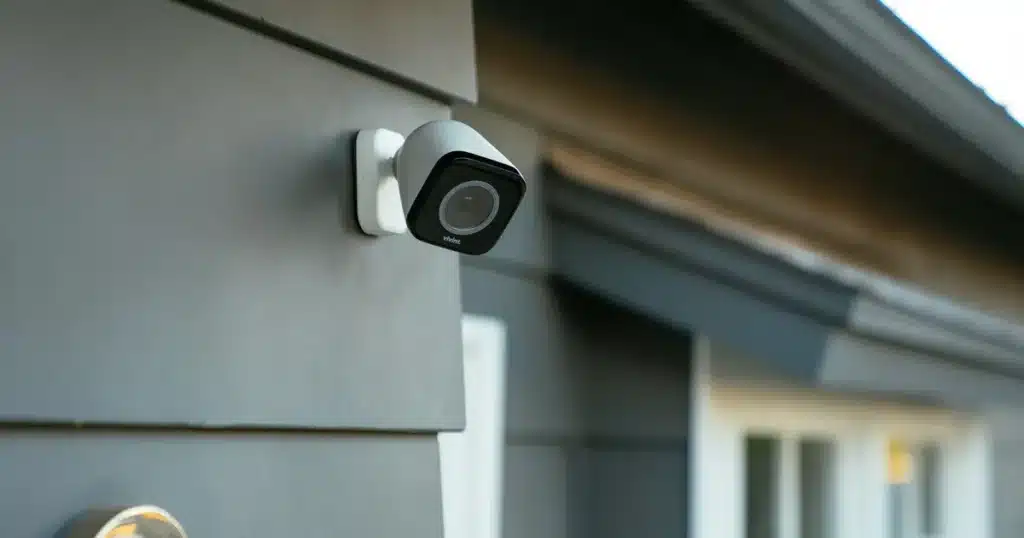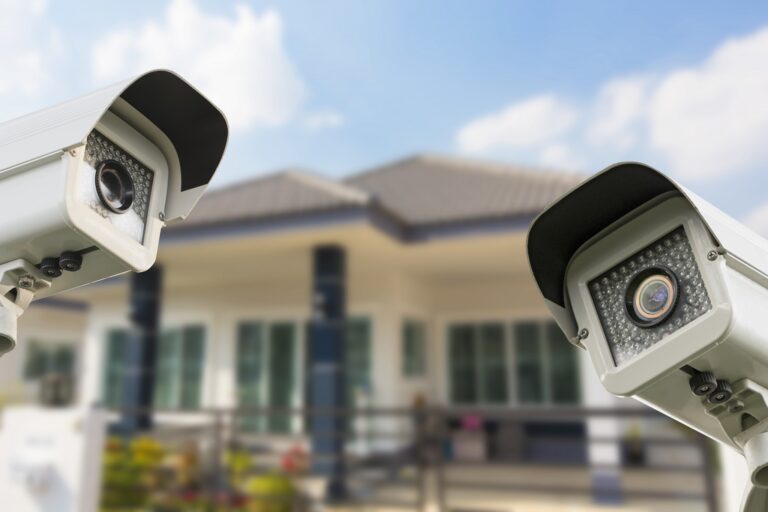Introduction
What Security Cameras Record 24/7: Security cameras have become an essential part of our daily lives, providing us with a sense of safety and security. These cameras are designed to record and monitor activities in various locations, such as homes, offices, and public spaces. With advancements in technology, security cameras are now capable of recording footage 24/7, ensuring that no event goes unnoticed. But what exactly do these cameras record round the clock?
Security cameras are equipped with high-resolution lenses and sensors that capture detailed images and videos. They are strategically placed in areas where surveillance is required, such as entrances, hallways, and parking lots. These cameras are designed to continuously record footage, ensuring that any suspicious or criminal activity is captured and can be used as evidence if needed.
When it comes to what security cameras record 24/7, it largely depends on the settings and preferences of the user or the organization. Some cameras are set to record continuously, capturing every moment that occurs within their field of view. This means that they record everything from the time they are turned on until they are turned off or the storage capacity is reached.
Other security cameras are equipped with motion sensors that activate the recording only when movement is detected. This helps conserve storage space and makes it easier to review footage when necessary. These cameras are particularly useful in areas with high foot traffic or where specific events are expected to occur.

Are there security cameras that record 24 7?
Yes, there are security cameras available in the market that can record 24/7. These cameras are designed to provide continuous surveillance and capture footage round the clock. They are commonly used in various settings such as homes, businesses, and public areas to ensure constant monitoring and enhance security measures.
One type of security camera that can record 24/7 is the traditional analog camera. These cameras are connected to a digital video recorder (DVR) that allows continuous recording. The DVR is equipped with a hard drive that can store large amounts of footage, enabling the camera to record for extended periods without interruption. This type of camera is commonly used in businesses and public areas where constant surveillance is required.
Another type of security camera that offers 24/7 recording is the network or IP camera. These cameras are connected to a network video recorder (NVR) that allows continuous recording and remote access to the footage. The NVR is equipped with a large storage capacity, enabling the camera to record and store footage for extended periods. IP cameras are commonly used in both residential and commercial settings, providing users with the ability to monitor their property remotely.
Some security cameras also offer the option of cloud storage, allowing users to store their footage securely online. This eliminates the need for physical storage devices and provides an additional layer of security for the recorded footage. Cloud storage also allows users to access their footage from anywhere, making it convenient for remote monitoring.
Do security cameras record all the time?
Security cameras are an essential tool in today’s world, providing surveillance and monitoring in various settings such as homes, businesses, and public spaces. One common question that arises when it comes to security cameras is whether they record all the time. The answer to this question depends on several factors, including the type of camera, its settings, and the purpose of the surveillance.
Firstly, it is important to note that not all security cameras record continuously. Some cameras are designed to only record when triggered by motion or other specific events. These cameras are often referred to as motion-activated or event-triggered cameras. They are programmed to start recording when they detect movement within their field of view or when a specific event, such as a door opening, occurs. This type of recording helps conserve storage space and makes it easier to review footage when necessary.
On the other hand, there are security cameras that do record continuously. These cameras are typically used in high-security areas or situations where constant monitoring is required. Continuous recording cameras capture footage 24/7, ensuring that every moment is recorded and can be reviewed later if needed. This type of surveillance is commonly used in places like banks, casinos, and government facilities.
It is worth mentioning that even cameras that record continuously may not store the footage indefinitely. The length of time that the recorded footage is retained depends on various factors, such as the storage capacity of the camera or the connected recording device, and the settings configured by the user. Some systems may overwrite old footage once the storage is full, while others may require manual deletion or archiving of the recorded data.
What is 24 hour CCTV surveillance?
24 hour CCTV surveillance refers to the continuous monitoring of a location or premises using closed-circuit television cameras. These cameras are strategically placed in various areas to capture and record video footage of activities that occur within the monitored area. The surveillance system operates 24 hours a day, 7 days a week, providing constant surveillance and monitoring of the premises.
CCTV surveillance has become increasingly popular in recent years due to its effectiveness in deterring crime and enhancing security. The presence of CCTV cameras acts as a deterrent to potential criminals, as they are aware that their actions are being recorded and can be used as evidence against them. This can help prevent crimes such as theft, vandalism, and trespassing.
One of the key advantages of 24 hour CCTV surveillance is its ability to provide real-time monitoring of activities. The cameras capture live video footage, which can be viewed in real-time by security personnel or property owners. This allows for immediate response to any suspicious or illegal activities, as appropriate action can be taken as soon as an incident is detected.
In addition to real-time monitoring, CCTV surveillance also provides the benefit of recorded footage. The cameras continuously record video footage, which can be reviewed and analyzed at a later time if needed. This can be particularly useful in investigations or legal proceedings, as the recorded footage can serve as valuable evidence.
Furthermore, 24 hour CCTV surveillance can be integrated with other security systems, such as alarms and access control systems. This integration allows for a comprehensive security solution, where multiple systems work together to provide enhanced security and protection. For example, if an alarm is triggered, the CCTV cameras can automatically start recording and provide visual evidence of the incident.
What is the difference between CCTV and surveillance cameras
CCTV stands for Closed Circuit Television, while surveillance cameras refer to any type of camera used for monitoring and observing a specific area or location. While the terms are often used interchangeably, there are some key differences between CCTV and surveillance cameras.
CCTV typically refers to a system of cameras that are connected to a central monitoring system. These cameras are often used for security purposes and are commonly found in public places such as banks, airports, and shopping malls. The footage captured by CCTV cameras is usually recorded and stored for later review.
Surveillance cameras, on the other hand, can refer to a wide range of cameras used for monitoring and observing. These cameras can be connected to a central monitoring system, but they can also be standalone devices that record footage locally. Surveillance cameras are commonly used in both residential and commercial settings for security purposes.
One of the main differences between CCTV and surveillance cameras is the way in which the footage is viewed and monitored. With CCTV, the footage is typically viewed in real-time by security personnel who are monitoring the cameras. Surveillance cameras, on the other hand, may be viewed in real-time or the footage may be accessed and reviewed at a later time.
Another difference between the two is the level of control and accessibility. CCTV cameras are often controlled by a central monitoring system, which allows for centralized control and access to the footage. Surveillance cameras, on the other hand, may be controlled and accessed by individual users or through a networked system.
What type of camera provides continuous monitoring?
When it comes to continuous monitoring, there are several types of cameras that can be used. One of the most common types is the IP camera, which stands for Internet Protocol camera. These cameras are connected to a network and can provide continuous monitoring by streaming live video footage over the internet. They are often used for surveillance purposes in both residential and commercial settings.
Another type of camera that provides continuous monitoring is the CCTV camera, which stands for Closed-Circuit Television camera. These cameras are typically used in security systems and are connected to a closed circuit, meaning that the video footage is only accessible to authorized individuals. CCTV cameras are often used in public places such as banks, airports, and shopping malls.
In addition to IP cameras and CCTV cameras, there are also wireless cameras that provide continuous monitoring. These cameras are connected to a wireless network and can be accessed remotely through a smartphone or computer. Wireless cameras are often used for home security systems and can be placed in various locations around the property to provide comprehensive coverage.
Furthermore, there are PTZ cameras that provide continuous monitoring. PTZ stands for Pan-Tilt-Zoom, and these cameras have the ability to pan, tilt, and zoom in on specific areas of interest. This makes them ideal for monitoring large areas such as parking lots or stadiums. PTZ cameras can be controlled remotely and can be programmed to automatically track movement or specific objects.
Lastly, there are thermal cameras that provide continuous monitoring. These cameras use thermal imaging technology to detect heat signatures and can be used in various applications such as firefighting, search and rescue operations, and perimeter security. Thermal cameras are particularly useful in low-light or no-light conditions as they can detect heat sources that may not be visible to the naked eye.
Security cameras that record 24/7 serve the crucial purpose of providing continuous surveillance and monitoring. By recording round the clock, these cameras ensure that every moment is captured, allowing for a comprehensive and detailed record of events. This constant recording is essential for various reasons, including crime prevention, evidence collection, and post-incident analysis.
Crime prevention: The presence of security cameras that record continuously acts as a deterrent to potential criminals. Knowing that their actions are being captured and can be used as evidence, individuals are less likely to engage in illegal activities. This proactive measure helps to maintain a safe and secure environment, both for individuals and properties.
Evidence collection: In the unfortunate event of a crime or incident, security cameras that record 24/7 provide valuable evidence that can aid in investigations and legal proceedings. The recorded footage can capture crucial details such as the appearance of perpetrators, their actions, and the sequence of events. This evidence can be instrumental in identifying and apprehending suspects, as well as ensuring a fair and just legal process.
How do security cameras ensure continuous recording?
Security cameras ensure continuous recording through various methods and technologies. One common method is the use of loop recording, where the camera continuously records footage and overwrites the oldest recordings when the storage is full. This ensures that the camera never stops recording, as it constantly replaces old footage with new one. Another method is the use of motion detection technology, where the camera only starts recording when it detects movement within its field of view. This helps conserve storage space and ensures that only relevant footage is recorded.
In addition, many security cameras are equipped with advanced features such as cloud storage and remote access. Cloud storage allows the recorded footage to be stored securely in the cloud, eliminating the need for physical storage devices and providing easy access to the recordings from anywhere with an internet connection. Remote access enables users to view the live or recorded footage remotely through their smartphones or computers, ensuring continuous monitoring even when they are not physically present at the location.
What are the benefits of having security cameras that record round the clock?
Having security cameras that record round the clock offers numerous benefits for both residential and commercial settings. One of the primary advantages is the enhanced level of security it provides. With continuous recording, security cameras can capture any suspicious activities or incidents that occur at any time of the day or night. This ensures that no event goes unnoticed, allowing for prompt action to be taken if necessary. Additionally, the presence of security cameras that record 24/7 acts as a deterrent for potential criminals, as they are aware that their actions are being monitored and recorded.
Another benefit of round-the-clock recording is the ability to gather valuable evidence. In the unfortunate event of a crime or incident, having recorded footage can be crucial in identifying the perpetrators and providing evidence for legal proceedings. This can greatly assist law enforcement agencies in their investigations and increase the chances of apprehending the culprits. Moreover, continuous recording allows for a comprehensive documentation of events, which can be useful for insurance claims or resolving disputes.
Furthermore, security cameras that record constantly offer peace of mind for property owners and occupants. Knowing that their premises are under constant surveillance provides a sense of security and reassurance. This is particularly important for businesses that may have valuable assets or sensitive information that needs to be protected. Additionally, round-the-clock recording can also be beneficial in monitoring the activities of employees or ensuring compliance with safety protocols.
What are the limitations or drawbacks to security cameras recording constantly?
While security cameras recording constantly may seem like an ideal solution for surveillance, there are several limitations and drawbacks to consider. Firstly, the continuous recording requires a significant amount of storage space. The high volume of footage generated can quickly fill up hard drives or cloud storage, necessitating regular maintenance and potentially additional costs for storage expansion.
Another limitation is the potential invasion of privacy. Constant recording means that every moment within the camera’s range is captured, including private activities that individuals may not want to be recorded. This raises ethical concerns and can lead to legal issues if the recorded footage is misused or shared without consent.
Additionally, constant recording can result in information overload. With a vast amount of footage to review, it becomes challenging for security personnel to identify and analyze relevant events effectively. This can lead to delays in detecting and responding to security threats, reducing the overall effectiveness of the surveillance system.
How can security camera footage recorded 24/7 be effectively managed and stored?
Managing and storing security camera footage that is recorded 24/7 is crucial for ensuring the effectiveness of the surveillance system. There are several strategies and technologies that can be employed to effectively manage and store this footage.
Firstly, it is important to have a robust storage system in place. This can involve using high-capacity hard drives or network-attached storage (NAS) devices specifically designed for video surveillance. These storage solutions should have redundancy features such as RAID configurations to ensure data integrity and prevent loss of footage.
Secondly, implementing a video management system (VMS) can greatly aid in managing and organizing the recorded footage. A VMS allows for easy search and retrieval of specific video clips, as well as the ability to set up automated retention policies to ensure that footage is stored for the required duration. Additionally, a VMS can provide advanced features such as video analytics and remote access to the footage.

Conclusion
Overall, security cameras that record 24/7 play a crucial role in ensuring the safety and security of various environments. These cameras are designed to continuously capture and store footage, providing a valuable resource for monitoring and investigating incidents. With advancements in technology, these cameras have become more sophisticated, offering high-resolution video quality and advanced features such as motion detection and remote access.
One of the key benefits of security smart cameras that record 24/7 is their ability to provide constant surveillance. By capturing footage round the clock, these cameras can monitor activities in real-time and deter potential criminals. The continuous recording also ensures that no event goes unnoticed, allowing for prompt response and intervention when necessary. This can be particularly beneficial in high-risk areas such as banks, retail stores, and public spaces where the presence of security cameras can act as a deterrent against theft, vandalism, and other criminal activities.
Furthermore, the recorded footage from these cameras serves as valuable evidence in the event of an incident. Whether it is a break-in, an accident, or any other unlawful activity, the recorded video can be used to identify perpetrators, gather information, and aid in the investigation process. This can be crucial in resolving disputes, providing proof in legal proceedings, and ensuring justice is served. Additionally, the ability to access and review the recorded footage remotely allows for quick decision-making and response, even when the security personnel are not physically present at the location.
Security cameras that record 24/7 offer a reliable and effective means of surveillance and protection. Their continuous recording capability ensures constant monitoring and provides a valuable resource for investigating incidents. With the advancements in technology, these cameras have become more advanced, offering high-quality video and advanced features. The recorded footage serves as crucial evidence and aids in resolving disputes and ensuring justice. Overall, these cameras play a vital role in maintaining safety and security in various environments.

